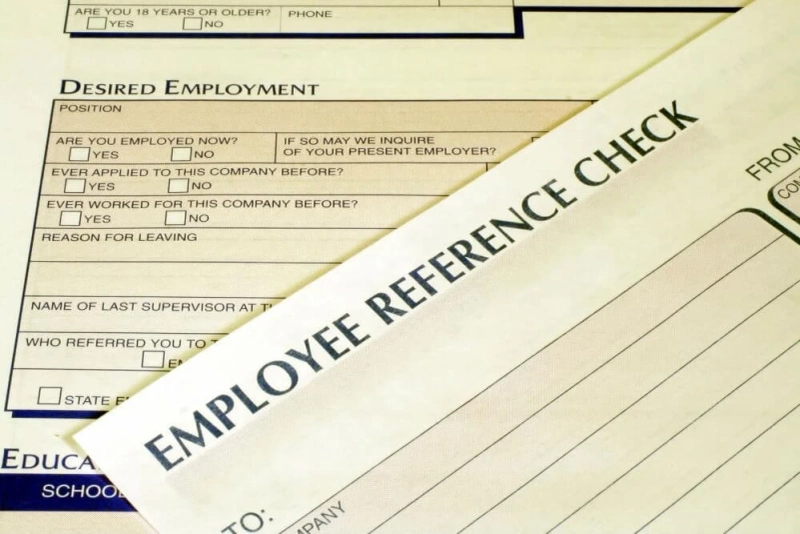In today\'s highly competitive job market, employers encounter the daunting task of making well-informed hiring decisions while prioritizing the safety and security of their work environment. As a result, pre-employment background checks have become an indispensable tool in this process. This article post aims to delve into the significance of pre-employment background checks and their pivotal role in fostering trust between employers and candidates. We will explore the motivations behind organizations conducting background checks, the diverse range of checks available, and the profound positive impact they have on workplace safety, employee retention, and overall organizational success.
Understanding the Importance of Pre-Employment Background Checks:
Pre employment background checks are an essential step in the hiring process, enabling employers to gather crucial information about potential candidates. These checks help verify the accuracy of the information provided by applicants, such as their educational qualifications, employment history, criminal records, and professional licenses. By conducting background checks, employers can make more informed decisions and reduce the risk of hiring individuals with a history of fraudulent activities, violence, or other concerning behaviors.
The primary goal of background checks is to create a secure and trustworthy work environment. By evaluating an applicant\'s background, employers can identify any red flags that may indicate a potential threat to workplace safety or the reputation of the organization. This proactive approach demonstrates the commitment of the employer to protect its employees, clients, and assets.
Types of Pre-Employment Background Checks:
Pre-employment background checks encompass a wide range of checks, each serving a specific purpose. Common types of background checks include criminal history checks, employment verification, reference checks, education verification, and credit history checks.
Criminal history checks involve reviewing an applicant\'s criminal records to identify any convictions or pending charges. This helps employers assess the candidate\'s potential risk to the workplace and make informed decisions accordingly. Employment verification ensures the accuracy of the applicant\'s work history, confirming previous employment dates, job titles, and responsibilities. Reference checks provide valuable insights into an applicant\'s character, work ethic, and performance by contacting their former supervisors or colleagues.
Education verification ensures that the candidate holds the educational qualifications they claim, confirming degrees, certifications, and academic achievements. Credit history checks, although not applicable to all roles, may be relevant for positions involving financial responsibilities. These checks provide information about an applicant\'s creditworthiness, financial stability, and potential risk of fraud or embezzlement.
Benefits of Pre-Employment Background Checks:
Employers who conduct pre employment background check benefit in numerous ways. Firstly, background checks help mitigate risks associated with hiring individuals who may have a history of unethical behavior or criminal activity. By thoroughly screening candidates, employers can make informed decisions, reducing the likelihood of workplace incidents, fraud, or negligent hiring claims.
Background checks also play a crucial role in maintaining a positive work environment. By hiring individuals with a proven track record of integrity and professionalism, employers can foster a culture of trust and accountability within their organization. This, in turn, promotes employee morale, engagement, and productivity.
Furthermore, pre-employment background checks contribute to employee retention. By carefully assessing candidates\' qualifications, work history, and character, employers can ensure a better fit between the individual and the role. This alignment leads to higher job satisfaction and lower turnover rates, saving organizations valuable time and resources in the long run.
Additionally, conducting background checks instills confidence in customers, clients, and stakeholders. When an organization demonstrates its commitment to hiring trustworthy individuals, it enhances its reputation and credibility. This can positively impact business relationships, attract high-quality clients, and contribute to the overall success of the organization.
Conclusion:
In a competitive business landscape, pre employment background checks are an essential tool for employers. By conducting thorough background checks, organizations can ensure trust, maintain workplace safety, improve employee retention, and protect their reputation. These checks provide valuable insights into a candidate\'s history, enabling employers to make informed decisions and hire individuals who align with their values and goals.
In conclusion, pre-employment background checks are a crucial component of the hiring process. They offer employers the opportunity to gather accurate information about potential candidates, ensuring that they are trustworthy, qualified, and suitable for the role. By implementing background checks, organizations can foster a secure work environment, enhance employee retention, and build a reputation based on trust and credibility. In an ever-evolving job market, pre employment background checks are a powerful tool that empowers employers to make informed hiring decisions and ensure the success and growth of their organizations.



